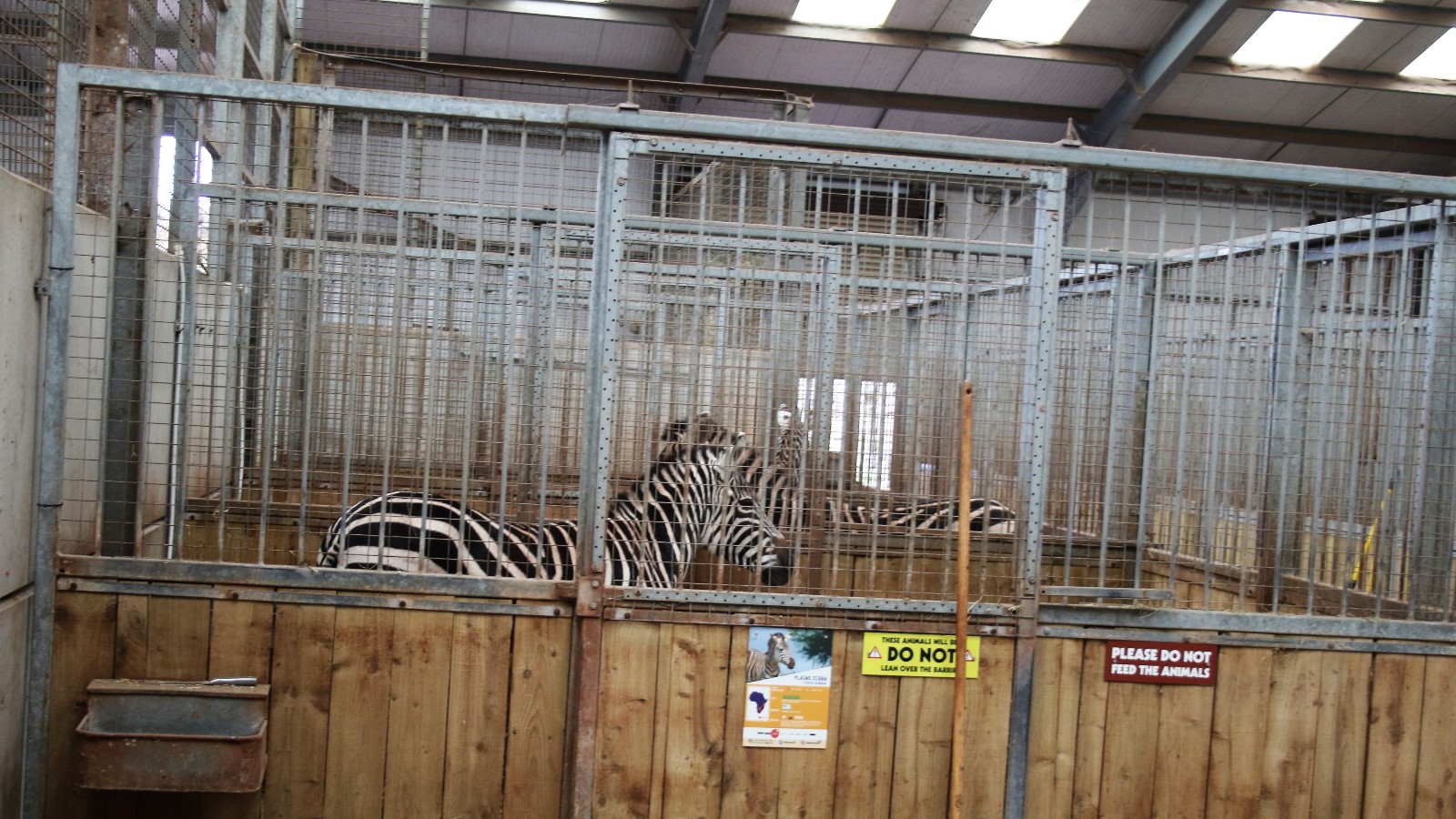Born free investigates concern for animals at South Lakes Safari Zoo
01 November 2022
BORN FREE INVESTIGATES CONCERN FOR ANIMALS AT SOUTH LAKES SAFARI ZOO
On 17th October 2022, Born Free visited South Lakes Safari Zoo in Cumbria to investigate the conditions in which animals are being held, following multiple reports from members of the public relating to animal welfare and the general running of the zoo. Our subsequent report and images documenting our findings garnered local, national and international coverage.

South Lakes Safari Zoo has been mired with problems dating back to 2013, including the tragic death of a keeper who was killed by a tiger, almost 500 animal deaths over just three years, the controversial breeding and euthanasia of lion cubs, and a revocation of its licence in 2017. The zoo is currently involved in an ongoing legal dispute relating to alleged breaches of the lease agreement between the owners of the site (Zoo Investment Company) and the tenants (Cumbria Zoo Company Limited).
Born Free continually monitors official inspection reports from zoos across the UK and in this case, while inspection reports have indicated some improvements at the zoo, inspectors continue to identify a large number of issues and in their own words, after the 2021 inspection, there was “still much to do”. On top of this, Born Free received 13 separate complaints from members of the pubic in relation to the conditions at the facility since June 2021 via our Raise the Red Flag campaign – by far the largest number of complaints we received in relation to an individual UK zoo over that period.
Investigation
The investigation was conducted with reference to the requirements of the Zoo Licensing Act 1981 and the Secretary of State’s Standards of Modern Zoo Practice. Our findings raised a number of concerns regarding animal social groupings, health care, holding capacity of enclosures and access for certain animals, food hygiene, pest control, suitable heat and UV provision, visitor-animal contact, and security. We wrote to the zoo management detailing our findings and concerns and explaining each potential breach against the specific sections of the Zoo Licensing Act and Secretary of State’s Standards of Modern Zoo Practice. We also relayed our findings to Barrow-In-Furness Council (the licencing authority for the facility), as well as making them public.
Concerningly, despite the evidence presented, a spokesperson for South Lakes Safari Zoo denied the findings, highlighting through an online news item the fact that 35 inspectors have visited the zoo since 2017. As yet, the zoo has not responded directly to our communication.
Next Steps
Barrow-In-Furness Council have announced that they, along with Defra appointed zoo inspectors, will carry out an inspection on the 17th of November 2022. Born Free welcomes the council’s decision to further investigate the conditions at South Lakes Safari Zoo.
Chris Lewis, Born Free’s Captivity Research Officer stated, “We are pleased to hear that Barrow Council will soon be visiting South Lakes Safari Zoo. We would urge the council and Defra to ensure it is individuals who have no prior history in dealing with the zoo that undertake the inspection so that the conditions can be viewed with fresh eyes and that evidence submitted by ourselves and others, is taken into account.” However, Born Free remains concerned by the current structure and process involved in zoo inspections throughout the UK, including the prior warning that zoos receive.
Chris continued, “The advanced warning a zoo is provided ahead of an inspection is further testament as to why the zoo inspection process within the UK needs a radical rethink by Defra. In this case, South Lakes have been provided with almost a month’s warning. With zoos being able to prepare for visits, inspectors may often not see the true running of a facility. A hybrid system of announced and unannounced visits similar to those employed under human health and social care regulations could provide inspectors with a greater insight into the running of a particular zoo.”
We will review the findings of the council’s inspection when their report has been made available.
REPORT YOUR CONCERNS & SPEAK OUT
If YOU have concerns about a captive wild animal, please report it via Born Free’s Raise the Red Flag online report form and visit our speak out page to find out how you can help further by raising your concerns with various points of contact.

